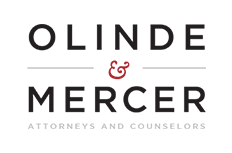Medication errors can cause significant harm to patients because they aren’t getting what they actually need. There are various ways that these errors can occur, but it’s up to the medical professionals to ensure they don’t happen.
More than 100,000 medication errors are reported annually. These are due to faults by doctors, nurses, pharmacists and other medical professionals. While patients keep an eye on what medications they’re receiving, they may not be able to catch them all.
What types of medication errors might occur?
Patients can experience a host of medication errors, including being given the incorrect medication, a wrong dosage of the correct medication, or receiving medications that have contraindications with each other. These can all be prevented if medical professionals who handle medications would follow established protocols.
What medications are commonly confused?
Medications that are most commonly confused include those that look similar and those that sound similar. Some of these have the same dosages as the medication they’re confused with. These medications are some of the more commonly mixed up:
- Methadone and methylphenidate
- Klonopin and clonidine
- Lamotrigine and labetalol
- Methotrexate and metolazone
- Hydralizine and hydroxyzine
- Toprol and Topomax
- Clomipramine and clophene
- Chlorpromazine and chlorpropamide
- Zyprexa and Zyrtec
Patients should always check their medications to ensure they’re being given the correct ones. Prescription bottles have descriptions on them to help with identification. Even though patients can watch for issues, the onus is still on the pharmacist to fill prescriptions with the proper medications.
What types of patient harm might occur?
Medication errors can lead to the patient not receiving treatment for a known condition. In some cases, it means they receive an overdose of a medication. Contraindications mean that the drugs could interact with each other in a way that harms the patient or that a drug will react negatively with the
Anyone harmed by a medication error should get medical care for the problems that occur. They may opt to pursue a claim for compensation to cover the damages that they’re dealing with. This can include the cost of medical care and other expenses related to the medication error.


